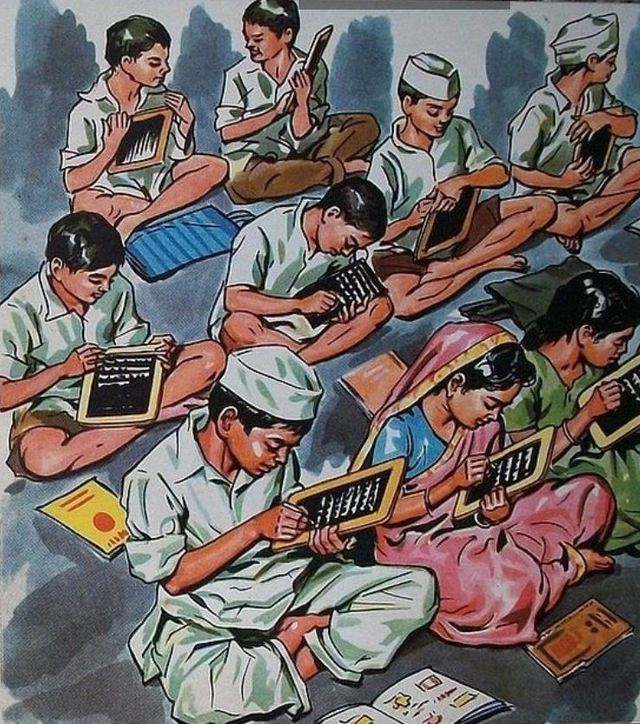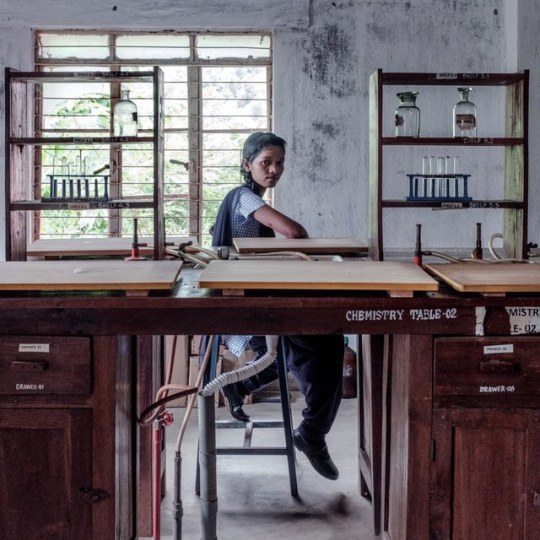India has a rich and illustrious history of higher education. The country has attracted scholars and thinkers from all around the world in pursuit of learning and knowledge. Epoch-making discoveries were made, perspectives formed, and the spirit of enquiry developed. Once India had universities like Nalanda, Takshashila, Vikramashila, Valabhi, Somapura, and Odantapuri, which were global leaders for eighteen hundred years beginning sixth century BC. Students and mentors from across the world attended these institutions. Such centers of learning have been the epicenter for the evolution of the idea of university in the country.

The colonial-era has ushered in a western construct of the university, deconstructing our heritage such as the Nalanda and Takshashila models. Currently, the higher education sector has expanded into 864 universities and over 40000 colleges. However, such quantitative shifts have exposed or unpacked concerns regarding excellence among higher education institutions in particular, and the sector in general. For instance, very few Indian institutions are ranked among the top 200 universities as per the QS world ranking league table. It is my firm belief that there are many higher education institutions in India that have the potential to become one of the best in the world.
India is all set to become the largest individual contributor to the global demographic transition with the working population (Ages 15-64) set to reach 869 million by 2020. It is predicted that India will experience a demographic bonus, where the growth rate of the working population would exceed that of the total population until 2020. The International Labor Organization (ILO) has predicted that by 2020, India will have 116 million workers in the work-starting age bracket of 20 to 24 years, as compared to China’s 94 million. The IMF reported that if India’s demographic dividend continues, it has the potential to add 2 percentage points per annum to India’s per capita GDP growth over the next two decades. Clearly, a well-educated, highly skilled workforce will be a huge advantage. We cannot let this opportunity pass us by. As India’s population increases, we need the private sector to step forward. The government plans to increase the Gross Enrolment Rate (GER) to 30%.
Though important, just an increase in number will not lead to a commensurate improvement in quality. We need to re-think our approach and align our education policy to focus on outcomes and globally recognized quality. It is important to understand why foreign universities are doing better than their Indian counterparts. At the same time, we ought to explore ways in which universities in India can compete with the world’s best universities in the rankings today and perhaps regain the lost position as the leader in Global education and progress.
Time has come that a serious discourse on how to address the quality concerns in higher education should begin not just in India but also in all emerging economies. There is an utmost need to cultivate a global consciousness in the higher education sector in India and in other emerging economies. Unless we do so, in the contemporary era of globalization, a country cannot grow in isolation. The connectivity and interdependence of countries on socio, political, and economic grounds are irreversible phenomena. The benefits of political stability, socio-cultural richness, and economic prosperity travel across borders through a flow of capital, labor, technology, and ideas. Since education in general and higher education in particular plays a major role in a country’s politico, socio, and economic outcomes, it is necessary that concerted efforts are put into building world-class universities.
In recent times, global benchmarking of higher educational institutions has also been acknowledged as a way to identify a world-class university. Detailed benchmarking of educational institutions is required to get quantitative shreds of evidence to see if the institution is succeeding in improving its standard as compared to certain identified global standards. Most of the benchmarking agencies give considerable weightage to research output and the international outlook of the educational institution. To my mind, therefore, rankings are not just a pursuit of numerical position, but it encourages healthy competition that results in research output that is globally recognized. Many have identified a number of basic features of a world-class university-high quality faculty members, research output, teaching-learning environment, high levels of public and private sources of fund, high-quality students, quality infrastructure, autonomy and facilitating governance university
Further, to be a world-class university, self-declaration is not enough, one needs to be recognized by the global community of higher education. One needs to reach out, communicate, exchange, and encourage mobility of persons and ideas across the globe. Many of the global benchmarking agencies, including the QS, gives considerable weightage to academic repute that pushes educational institutions to reach out to the world at large.
No higher educational institution can succeed without adequate focus on research. We need to create an atmosphere of curiosity, audacity, and interdisciplinary connectivity. We need to encourage a drive and a desire among students to solve complex problems.
We are often told that despite having all prerequisites, Indian institutions fail to make it to the rankings because they do not provide inputs to ranking organizations in the necessary format. Concrete action to present the credentials of our institutions is needed. Institutions must set up nodal authorities to handle data coordination. Some of the IITs have developed expertise in dealing with the rating process. They can act as knowledge partners to other institutions. I also see that to begin with, India can feature in the regional rankings.
When one realizes the need for the global character of today’s universities, at the same time one is also reminded of the fact that universities cannot be made irrelevant to their immediate ground reality. While it is necessary that universities need to situate themselves in the global arena of higher education, it is also important that the vision and mission of the university is well-grounded in its local context.
The global situation is changing so fast, it is dangerous to make any kind of projection for the social sector, particularly for the education sector. The quality of higher education is very essential. It should be considered as a non-negotiable factor. Thus higher education system should aim at promoting quality and professionalism. There is an urgent need of autonomy of higher educational institutions.

Autonomy is the most essential ingredient of excellence. It can be achieved both by private institutions and public institutions. The quality is important not the ownership or nature organization. None should be blamed or pampered. The goal of sustainability in higher education does not involve the change of ownership. It involves the shift in emphasis and approach for genuine quality and social relevance but not necessarily for job-market-relevance. One needs to distinguish between society and market; and their imperatives. The higher education system should have a strong and meaningful feedback system which enhances the self-correction and self-direction.
[zombify_post]









